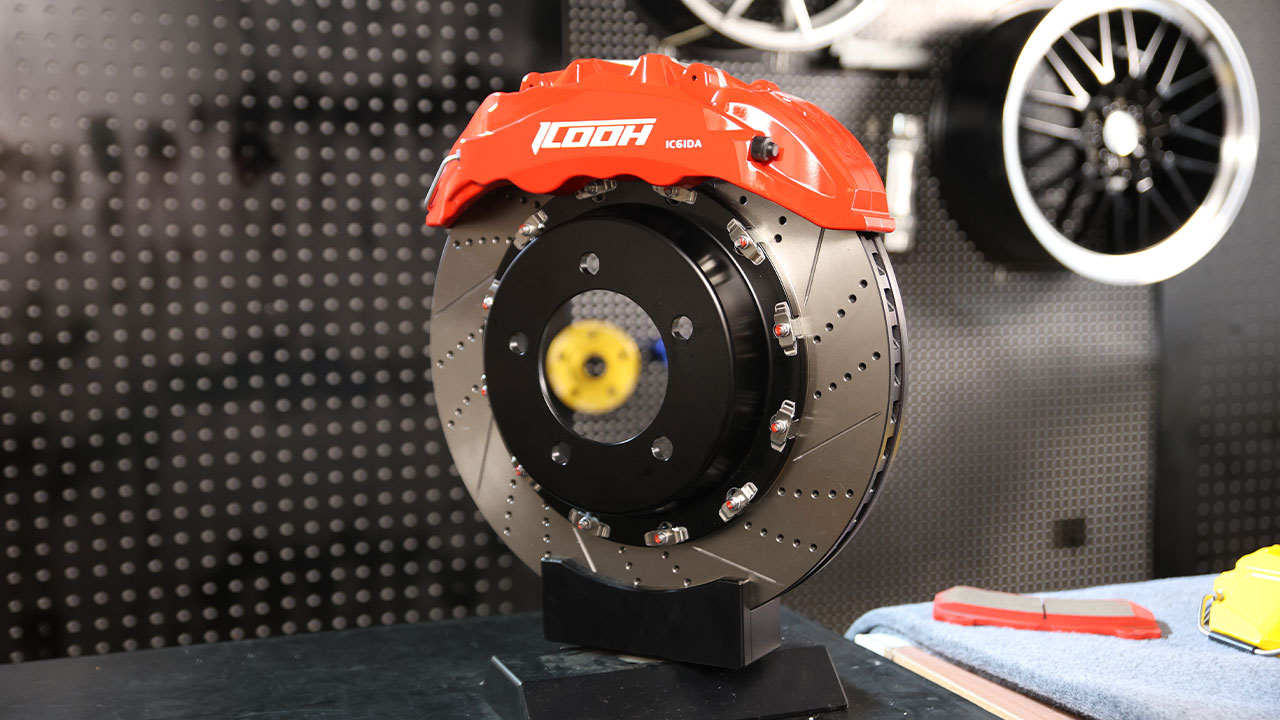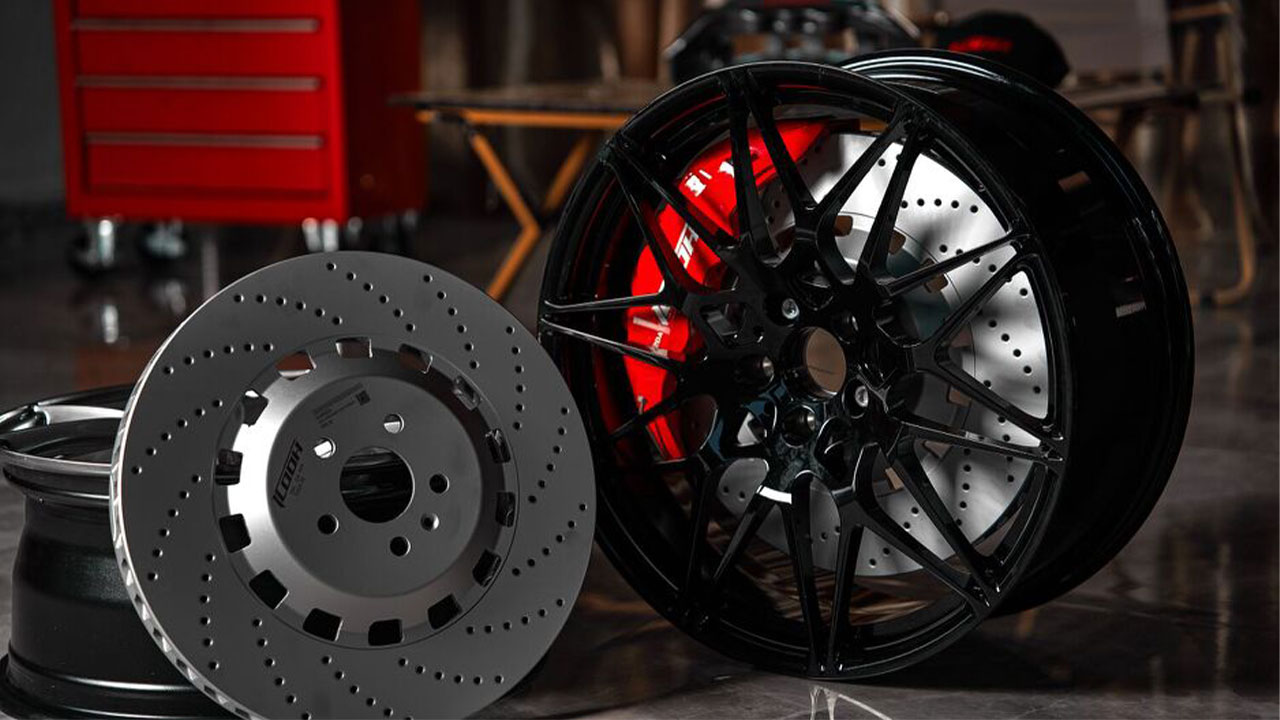How do I know if my brake caliper is bad?

Every time you press the brake pedal whilst driving, you’re trusting a complicated device to deliver your car to a protected stop—and the brake caliper is a quintessential phase of that system. Imagine you’re commuting domestically from work, and you observe an unusual squealing sound each time you sluggishly slow down for a stop sign. Or perhaps your auto pulls barely to the left when you hit the brakes, even though you’re preserving the wheel straight. These little crimson flags aren’t simply annoyances; they should be symptoms that your brake caliper is failing.
The brake caliper’s job is to squeeze the brake pads in opposition to the rotor, creating the friction needed to stop the car. When it malfunctions, your protection on the street is at risk. Knowing the warning signs and symptoms can assist you in tackling the trouble earlier, before it turns into a principal problem.
1. Unusual Noises When Braking
One of the most apparent symptoms of an awful brake caliper is unusual noises in the course of braking. If you hear squealing, grinding, or clicking sounds, it may also suggest the caliper is sticking or no longer making use of stress evenly. A sticking caliper can cause the brake pad to rub in opposition to the rotor continuously, mainly to put on and the squealing sound. Grinding noises regularly point out that the brake pad fabric is worn down completely, and the metallic backing is now rubbing towards the rotor—this is a serious problem that requires instantaneous attention.

2. Vehicle Pulls to One Side
If your auto pulls to the left or proper when you practice the brakes, an erroneous caliper is a probable culprit. When one caliper is caught or no longer functioning properly, it applies greater strain to one brake pad than the other. This uneven stress motivates the car to go with the flow towards the aspect with the greater energetic caliper. For example, if the proper caliper is sticking, the proper brake will have interaction extra forcefully, pulling the auto to the proper when braking. This now not solely impacts managing but additionally reduces braking efficiency.

3. Overheating Wheels
A horrific caliper can cause a wheel to overheat. If the caliper is caught in the engaged position, the brake pad will continue to be pressed towards the rotor even when you’re not braking. This regular friction generates immoderate heat, which can be felt by means of touching the wheel (carefully, after driving) in contrast to the different wheels. An overheated wheel may additionally emit a burning smell, every other clear warning signal that the caliper is malfunctioning.
4. Reduced Braking Performance
If you be aware that your brakes sense spongy, require extra stress to stop the car, or take longer to deliver the automobile to a halt, the caliper should be to blame. A caliper that’s now not working efficaciously may also now not observe sufficient strain to the brake pads, decreasing the friction wished for advantageous braking. This is a hazardous situation, as it will increase the stopping distance and places you at chance of accidents.
FAQs
Q1: What causes a brake caliper to go bad?
Common causes include rust or corrosion from moisture, worn-out sealants that let dirt in, low or contaminated brake fluid, and normal wear from long-term use.
Q2: Can I still drive my car if the brake caliper is bad?
It’s not recommended. A faulty caliper reduces braking efficiency and can lead to accidents. Drive to a mechanic immediately if you notice symptoms.
Conclusion
In conclusion, recognizing the signs and symptoms of a terrible brake caliper is indispensable for retaining your vehicle’s safety. Unusual braking noises, automobile pulling, overheating wheels, and decreased braking overall performance are all key indications that your caliper can also be failing. Ignoring these signs and symptoms can lead to greater extreme harm to your brake machine and even compromise your protection on the road. If you note any of these symptoms, it’s necessary to have your brake machine inspected by means of a expert mechanic as quickly as feasible to make sure your brakes are working properly.

what is abs brake system?

Why is my Honda saying brake system problem?

how to repair sticking brake caliper?

how to remove brake caliper?
Racing Vehicles
How long can the product maintain stable performance at high temperatures?
Tests have shown that it can maintain a stable friction coefficient continuously at temperatures of 600–800°C, with no noticeable degradation.
Do you offer customized services?
We can customize the caliper, disc, and friction pad combination based on the vehicle type, event type, and driving style.
About Company
OEM service?
We have a professional R&D team of engineers who can provide and design products for you.
About Cooperation Process
What warranty do your products come with?
Offers a 1-year warranty for standard products; the warranty period for carbon fiber kits is 6-12 months due to process differences. Purchase certificates must be retained.
About Application
Can you provide technical specifications and material data sheets?
Yes. Each product comes with complete technical specifications, material data sheets, and installation guides, which can be obtained on the product page or from a sales consultant.




Explore More Automotive News
Subscribe to our newsletter for the latest tuning cases, technology trends, and industry analysis.














Facebook
Linkedin
Youtube
Instagram